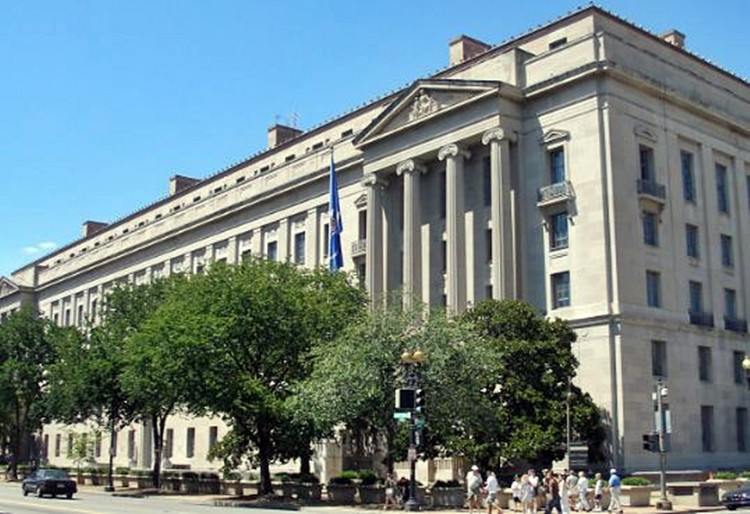The U.S. Department of Justice (DOJ) is frantically trying to prevent a federal court in Maryland from releasing the financial records of president Donald Trump, fearing Special Counsel Bob Mueller might use the information to prosecute Trump.
DOJ lawyers on Aug. 17 asked U.S. District Judge Peter J. Messitte to let them file a legal appeal that might temporarily keep Trump's critics from laying their hands on financial records related to Trump's Washington, D.C. hotel, the Trump International Hotel.
The lawsuits against Trump contend foreign representatives that spend money at the Trump International Hotel violate the U.S. Constitution's emoluments clause. This clause prohibits officials of the U.S. federal government from accepting benefits from foreign governments without congressional approval.
This July, Judge Messitte ruled that one of the lawsuits against Trump citing the emoluments clause could go forward. The ruling that an emolument extends to any profit, gain or advantage was the first time a federal judge had defined the term as applied to a president of the United State.
DOJ wants a higher court to review this definition, and the argument the plaintiffs suffered actual harm and have a right to sue. The plaintiffs, in this case, are the state of Maryland and the District of Columbia.
DOJ wants to prevent this case from reaching the next step -- legal discovery -- which will reveal Trump's income tax returns. DOJ lawyers asked Judge Messitte to put the case on hold while they appeal his decision to a higher court in Richmond, Virginia.
The plaintiffs said they plan to move forward quickly with discovery. They want Trump's financial records and financial information from the Trump International Hotel, among many others.
DOJ opposes discovery on an incumbent president in his official capacity because of concerns over separation of powers. It wants to prevent a constitutional confrontation between the executive and the judicial branches of government. DOJ lawyers allege that any discovery will distract Trump from performing his constitutional duties.
That' nonsense, countered D.C. Attorney General Karl Racine. He said that after winning two major rulings in this case already, their legal team anticipated Trump's most recent motion. He said they want to propose a schedule for discovery by Sept. 14 and will request relevant documents thereafter.
Two other lawsuits accuse Trump of violating the emoluments clause. Neither has reached discovery.
The plaintiffs contend that Trump is profiting from the presidency and causing harm to businesses trying to compete with the Trump International Hotel. Trump has refused to divest his assets as required by law.






